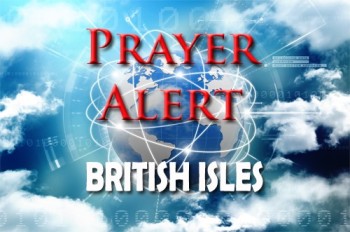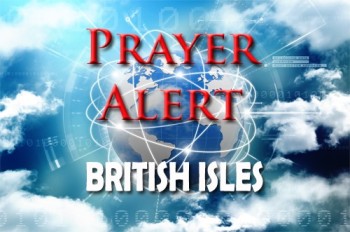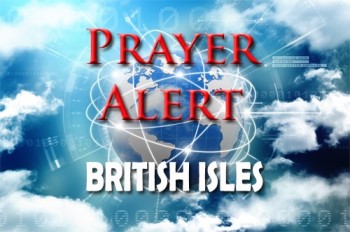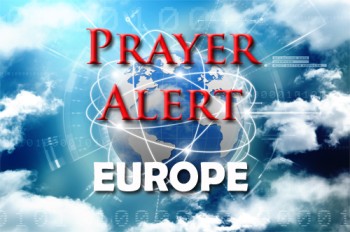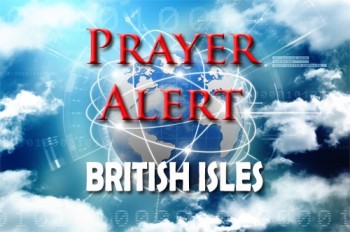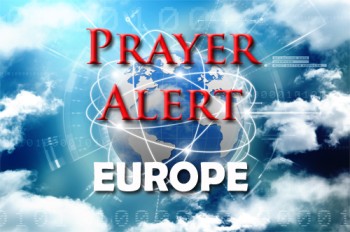Displaying items by tag: negotiations
Middle East: Trump and Netanyahu meet as Iran talks continue
Rising tensions in the Middle East frame a significant meeting between Donald Trump and Benjamin Netanyahu in Washington. Israel is seeking a comprehensive agreement restricting Iran’s nuclear programme, missile development, and support for regional proxy groups, while Iran has signalled willingness to limit nuclear activity in exchange for sanctions relief but rejects broader demands. The USA has increased military presence in the region, warning of possible strikes if negotiations fail, yet leaders on all sides are continuing the dialogue. Iran’s position has been weakened by the huge recent protests, while Israel fears a deal that leaves long-term threats unresolved. At the same time, the Trump administration is pressing Israel and Hamas to implement the next phase of their ceasefire agreement in Gaza, with accusations of violations and little progress towards reconstruction.
Last-minute offer may avert strike by resident doctors
A major strike by resident doctors in England, due to begin on 17 December, may be averted after ministers offered the British Medical Association a new deal centred on expanding training opportunities rather than pay. The BMA has agreed to put the offer to members in an online survey closing on 15 December. If members support it, the five-day walkout could be cancelled. The proposal includes 4,000 additional specialist training posts by 2028, with 1,000 available next year, and measures to prioritise UK-trained doctors for competitive roles, as well as covering exam fees and other expenses. However, it contains no pay increase; health secretary Wes Streeting insisted that pay negotiations are closed following nearly 30% rises over three years. Criticising the BMA for not immediately suspending strike plans, he warned that hospitals must now begin cancelling appointments to prepare for potential disruption during a difficult winter. The BMA says strikes have forced government action but stresses the offer does not address long-term pay erosion. If members indicate the deal is insufficient, the strike will proceed.
No food trade deal until we get youth mobility, EU tells Starmer
Brussels has warned that no deal on easing border checks for UK food imports will be reached unless Britain agrees to expand youth mobility schemes. The proposed sanitary and phytosanitary (SPS) agreement - central to Labour’s plan to reduce food costs by 2027 - would align rules on plants, animals, and food products, cutting supermarket prices and border delays. But EU negotiators insist progress depends on allowing more young Europeans aged 18 to 30 to live and work in the UK. Cabinet office minister Nick Thomas-Symonds pressed for urgency during talks in Brussels, stressing the need for relief as food inflation has risen for five consecutive months, with key staples up 5.1% annually. European diplomats, however, argue the SPS deal is more important for Britain than the EU. Meanwhile, UK firms face possible exclusion from bidding on EU defence projects worth €150 billion unless terms are finalised soon, with France resisting UK involvement. The Government faces mounting pressure as household food costs continue to climb.
Iran: Trump seeks to curb Tehran’s nuclear ambitions
Donald Trump is intensifying his efforts to address Iran’s nuclear ambitions. After withdrawing from the 2015 nuclear deal (JCPOA), he reimposed sanctions, citing Iran's support for militias like Hamas and Hezbollah. Iran has subsequently ignored some of the deal's restrictions and enriched more and more uranium nuclear fuel: analysts fear it could soon be capable of making a nuclear warhead. Trump has reinstated his ‘maximum pressure’ strategy, imposing additional sanctions, but he has now agreed to direct discussions between US and Iranian officials in Oman. However, the USA is demanding full dismantlement of Iran's nuclear programme, a request Tehran will find difficult to accept. Iran’s hardliners view nuclear deterrence as essential, and past negotiations show how challenging these discussions can be. Israel insists on the complete dismantling of Iran’s nuclear capacity, while military action remains a possibility if talks fail.
Gaza: closer to a ceasefire deal?
After months of deadlock, there are new signs that Israel and Hamas could be moving closer to a Gaza ceasefire and hostage release deal. The USA, Qatar, and Egypt are reporting greater willingness by both sides to conclude a deal. Talks are reportedly in a decisive stage. Israel’s defence minister has indicated that they are close to an agreement, though challenges remain, including far-right Israeli cabinet opposition and Hamas's conditions. A three-phase plan proposes releasing civilian and women hostages, with Israeli troop withdrawals and a mechanism for displaced Gazans to return. Subsequent stages include freeing remaining hostages and a broader troop withdrawal. Of 96 hostages in Gaza, 62 are believed to be still alive; a hundred others have been freed through negotiation or military action. The negotiations have been given a new push by Donald Trump’s election; he has warned that a ceasefire deal should be reached before he takes office, because otherwise ‘it’s not going to be pleasant’.
Irish elections: what happens next?
Ireland’s general election has set the stage for coalition negotiations to form the next government. Fianna Fáil emerged as the largest party with 48 seats, followed by Sinn Féin with 39 and Fine Gael with 38. With 88 seats needed for a majority, Fianna Fáil and Fine Gael are expected to renew their coalition, perhaps with support from independents or smaller parties. Micheál Martin, leader of Fianna Fáil, is poised to return as Taoiseach under the coalition's rotation agreement. Fine Gael, led by Simon Harris, will likely alternate leadership roles during the government’s five-year term. Despite Sinn Féin’s gains, the other parties have ruled out collaboration with them. Negotiations will center on policies like enterprise, EU relations, and home ownership. Meetings and talks are expected to last for weeks, with the Dáil returning on 18 December. Ministers will remain in caretaker roles until a coalition agreement is finalised, likely in early 2025.
PM goes to Brussels, eyes closer UK-EU cooperation
Sir Keir Starmer made his first visit to Brussels this week, aiming to rebuild UK-EU relations post-Brexit. His visit focused on strengthening cooperation in defence, security, energy, climate change, and tackling irregular migration. While Starmer’s message of 'sensible leadership' was welcomed, the EU remains cautious, particularly regarding Labour’s call to reduce trade barriers. The EU reminded Starmer that these barriers stem from the UK’s decision to leave the single market and customs union, which he reaffirmed will not be renegotiated. Discussions on migration found some agreement, particularly regarding stopping people-smuggling gangs. However, European leaders remain divided on migration policy, with some calling for the UK to open more legal pathways for asylum-seekers. Other negotiations include easing trade restrictions on UK exports and a proposed youth mobility scheme. The EU wants the UK to comply with existing agreements before opening new negotiations, signalling that while cooperation may improve, trade-offs will be required on both sides.
Ukraine / Russia: diplomatic manoeuvres alongside military manoeuvres
This week has seen intensified Russian drone attacks on Ukrainian infrastructure and steady Russian advances in the Donbas region, balanced by Ukraine’s incursion into the Kursk region. Diplomatically, both sides continue to show a lack of willingness to compromise. China has reaffirmed its support for Russia through a high-profile visit by premier Li Qiang and a military delegation to Moscow. Meanwhile, India's prime minister Narendra Modi has made a significant visit to Kyiv, signalling India's complex position between its historical ties with Russia and growing relationships with Western nations. Although India has not condemned Russia's actions, Modi's visit to Ukraine and his emphasis on dialogue indicate a potential shift in India's stance. The USA also announced a new military aid package and additional sanctions targeting entities supporting Russia. The diplomatic landscape remains fluid, with all parties manoeuvring for strategic advantage on the global stage.
Potential new offer to health workers
Health secretary Steve Barclay will hold another round of talks with union leaders ahead of planned strikes by nurses. Whitehall said ministers were working on options for resolving the strikes, which could include a one-off payment to reflect cost of living pressures. They recognised that union leaders ‘have to get something for this year’ before they will consider calling off the current wave of industrial action. What level of payment might be offered, and how it could be funded, is not yet clear. There are also concerns that any payment to resolve the health dispute would set a precedent for other sectors facing industrial strife, including education and transport, potentially landing the taxpayer with a bill running into billions of pounds. The moves came as 25,000 ambulance workers staged a second day of walkouts and unions warned they could boycott talks on the next pay round in April.
UK / Ireland Brexit deadlock
Tony Blair and Bertie Ahern have been working behind the scenes to get the UK and EU back to the negotiating table over Brexit and the Stormont government collapse. Hard Brexiter Steve Baker has been transferred to the Northern Ireland office, replacing Conor Burns, who went to the Department for International Trade. UK-EU protocol talks were paused when Russia invaded Ukraine. The already strained relations deteriorated further in June when Liz Truss introduced a bill enabling the UK to remove some Northern Ireland Brexit protocol. Hopes of a thaw in UK-EU relations have been fuelled by the absence of Lord Frost from Truss’s new cabinet. Burns met Europe’s Marcus Šefčovič at the weekend and had ‘constructive and prolonged talks’. He told MPs, ‘I am convinced that if the appetite exists, we can find a way to a negotiated solution to the Northern Ireland protocol.’


